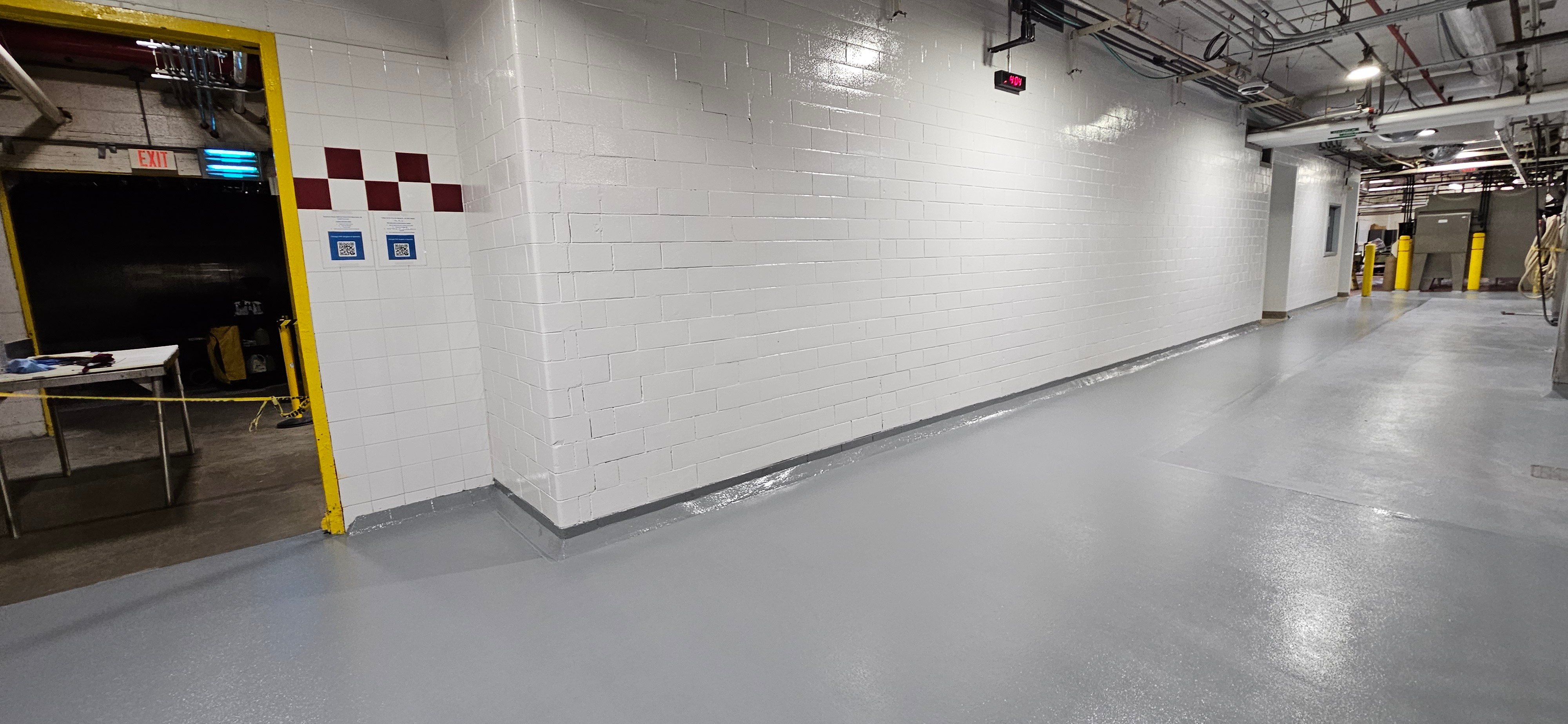
When it comes to industrial flooring, durability is only part of the equation. Many facilities—especially those in food processing, pharmaceuticals, manufacturing, and chemical production—need flooring that can stand up to aggressive substances like acids, oils, and solvents. That’s where urethane cement stands out.
At CustomCrete, we help businesses across Chicago choose high-performance flooring systems that are tailored to their environment. Urethane cement is one of the top choices for spaces where chemical resistance is a must. In this blog, we’ll explore what makes urethane cement chemically resistant, how it compares to other materials, and which industries benefit most from its use.
What Is Urethane Cement?
Urethane cement, also known as urethane mortar, is a hybrid flooring system that combines urethane resins with cement powder and aggregates. The result is a dense, impact-resistant, and thermal shock-resistant surface that bonds tightly to concrete substrates.
Because of its unique composition, urethane cement is able to perform in environments where other coatings or systems might fail—including under constant exposure to harsh chemicals.
Why Is Urethane Cement So Chemically Resistant?
The secret behind urethane cement’s chemical resistance lies in its structure. Unlike epoxy or acrylic coatings, which may degrade when exposed to certain acids or solvents, urethane cement is:
- Non-porous: Prevents absorption of corrosive substances
- Alkaline-resistant: Handles high-pH cleaners and caustics
- Acid-resistant: Protects against organic and inorganic acids
- Thermally stable: Withstands temperature swings that often accelerate chemical damage
- UV-stable: Resistant to degradation from sunlight or harsh lighting
This makes urethane cement ideal for facilities that encounter frequent washdowns, aggressive sanitizers, chemical splashes, and exposure to oils and fats.
What Chemicals Can Urethane Cement Resist?
Urethane cement is commonly tested against a wide range of substances. While exact resistance varies by product and formulation, many urethane cement systems hold up well against:
Manufacturers often publish chemical resistance charts to show how their urethane cement performs after extended exposure. These charts are helpful when evaluating compatibility with specific chemicals in your facility.
How Does It Compare to Other Flooring Materials?
Here’s how urethane cement stacks up against other common flooring options:
- Urethane Cement: Excellent chemical resistance; best for high chemical and thermal stress environments.
- Epoxy Coatings: Moderate to high chemical resistance; ideal for warehouses and dry production areas.
- Vinyl or Tile: Low to moderate chemical resistance; suitable for light-duty, low-chemical exposure areas.
- Polished Concrete: Low chemical resistance if unsealed; best for general use areas with minimal chemical exposure.
While epoxy systems can offer good chemical resistance, they are often less effective in environments with thermal shock or high acidity. Urethane cement is uniquely suited to manage all of these variables at once.
Industries That Benefit from Urethane Cement
Urethane cement is the preferred flooring solution in many industries that require both durability and chemical protection:
- Food and Beverage Processing: Handles acid-based cleaners, animal fats, sugars, and lactic acid.
- Pharmaceutical Manufacturing: Resists disinfectants and sanitizers used for sterile environments.
- Chemical Production Facilities: Protects floors from corrosive compounds and frequent spills.
- Bottling Plants: Manages exposure to sugar-based residues and frequent washdowns.
- Commercial Kitchens: Withstands grease, heat, and cleaning agents.
- Dairy Plants and Breweries: Neutralizes the effects of fermentation byproducts and acidic compounds.
If your facility deals with any combination of heat, moisture, and harsh chemicals, urethane cement may be the ideal solution.
Maintaining Urethane Cement Floors
Although urethane cement is highly resistant, it still benefits from regular cleaning and basic care:
- Use pH-neutral cleaners to preserve the surface finish
- Clean spills quickly to prevent hazards
- Avoid abrasives that could damage topcoats or texture
- Schedule periodic inspections to identify wear or impact damage early
With proper maintenance, urethane cement floors can last 10–20 years or more, even in harsh conditions.
Final Thoughts
When chemical exposure is part of your day-to-day operations, standard flooring materials may not provide the protection you need. Urethane cement delivers a reliable, long-lasting solution that resists damage from acids, alkalis, solvents, and disinfectants—while also standing up to heavy traffic and thermal shock.
At CustomCrete, we install urethane cement flooring systems tailored to your industry’s needs, helping businesses across Chicago stay compliant, clean, and efficient.
Want to explore urethane cement for your facility? Visit our next blog on “The Lifespan of Urethane Cement Floors: What to Expect and When to Replace”.
Topics:









.jpg?width=7008&height=4672&name=CC101560%20(1).jpg)









.jpg?width=2048&height=1365&name=CC103622%20(2).jpg)
.jpg?width=1200&height=1600&name=Copy%20of%20IMG_1457%20(1).jpg)



